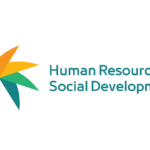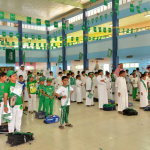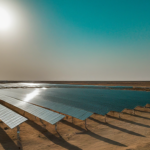
“I would say that without the support of Aramco, LET would not be as strong as it is today. And I think they are growing the game of golf in women’s golf, and I think that if you speak to any of the Ladies European Tour players, they are extremely grateful for this opportunity, and I think that’s what Aramco is trying to do. They are trying to grow the women’s game, and I support that fully.”
Lexi Thompson, winner of the recent Aramco Team Series event in New York. [Golfweek]

“Saudi Arabia does not really need the money. This is a good way to keep engaged with the international debt capital markets, while undertaking some liability management in terming out its debt maturities.”
-Abdul Kadir Hussain, head of fixed-income asset management at Dubai-based Arqaam Capital. Saudi Arabia sold bonds and Islamic securities, while offering to buy back some of its existing debt. [Bloomberg]

“We are not inviting too many politicians… because I realized that when you have political leaders on stage, the attention of the media, let’s be very frank, is diverted to the political agenda, and we don’t want FII to become a political platform.”
Richard Attias, CEO of the FII Institute, the organizer of the FII 2022. No Biden administration officials were invited to attend this year’s event. Attias said he was seeing “more and more appetite from the US private sector to attend FII.” [The New Arab]

“The Saudis have a very different point of view. The official line is that it is “ just an economic decision” — but it’s more than that. It’s a strategic move in the broadest sense, yet not aimed against Washington and even less toward Moscow. Saudi Arabia is attempting an epochal socio-economic transformation in short order. The country has a few decades to use its remaining oil revenue to remake itself into a society that can function without relying on petroleum exports.”
Hussein Ibish, Democrats Can’t Let OPEC+ Spat Derail US-Saudi Relationship [Bloomberg]

“We are witnessing an accelerated artistic movement, and there is a remarkable interest and an increasingly palpable social awareness that countries are moving forward with their artists, creators and intellectuals, and we are experiencing this in Saudi Arabia now more than ever, and obviously all this has had a positive impact on the visual arts in our country…Now culture and art have the support of King Salman bin Abdulaziz and Crown Prince Mohammed bin Salman and this gives us all the support we need to move forward.”
–Laila Al-Jindan, Saudi artist, in a piece highlighting how art and culture are “experiencing their best moment in Saudi Arabia.” [atalayar.com]

“I don’t believe this relationship is broken, very far from it. This relationship is very robust. We have almost 80,000 Americans living and working in Saudi Arabia, we have a very strong trade and investment relationship. We work very closely with regards to ensuring our common interests, whether it’s to bring peace to Yemen, whether it’s to bring peace between the Israelis and Arabs, whether it’s to stabilize Afghanistan, whether it’s to reintegrate Iraq into the Arab fold. Whether it’s to bring stability to the Horn of Africa, stability and peace in Libya, in the G5 countries of the Sahel whether it’s to fight extremism and terrorism, those interests are permanent and those interests are tremendously important to both countries, and to the security stability, not only of the region, but the world. And so that it is incumbent upon both countries to work together in order to realize the objectives that they both have, which occurred to the benefit of both people in both countries. Now, I can’t unfortunately, when you’re in the election season, what some people call the funny season, a lot of things are said and lots of things are done that maybe may not make sense at another period of time. And I hope that this is what we’re dealing with here. However, when it comes to the relationship between the two countries, it’s fundamental it’s very strong. And it’s fundamental and strong because the interests of the two countries require that they work very closely together in order to overcome the many challenges that they face.”
HE Adel Al-Jubeir, Minister of State for Foreign Affairs [CNN]

“One of the most important things that the United States can do in the next ten years to preserve U.S. economic power and influence is build an international consensus on trade and intellectual property rules around technology. Both the economic and the military might that come from U.S. technological leadership are essential to the Biden administration’s vision for future security. “Nowhere is this need more acute than in updating the rules of the road for technology, cyberspace, trade, and economics.” it reads.”
New National Security Strategy Returns Focus to Rules, Partnerships, and American Leadership [Defense One]

“You will see Saudi Arabia turn more and more to Russia and China. And how does that play out in terms of meeting our interests? I think Putin would potentially have a closer ally in the fight against Ukraine. China would have greater entrée to the Middle East. And there would be significant challenges there. And after all of that, would Saudi Arabia be a better global actor?”
-Rep. Adam Smith (D-WA.), the chairman of the House Armed Services Committee, said in an interview that a proposed year-long suspension of U.S. arms sales to Saudi Arabia could benefit both Russia and China. [The Hill]

“Our global growth forecast for this year is unchanged at 3.2 percent, while our projection for next year is lowered to 2.7 percent—0.2 percentage points lower than the July forecast. The 2023 slowdown will be broad-based, with countries accounting for about one-third of the global economy poised to contract this year or next. The three largest economies, the United States, China, and the euro area will continue to stall. Overall, this year’s shocks will re-open economic wounds that were only partially healed post-pandemic. In short, the worst is yet to come and, for many people, 2023 will feel like a recession.”
Policymakers Need Steady Hand as Storm Clouds Gather Over Global Economy [IMF]

“While it’s true these monarchies should (and I believe do) appreciate all the US does to help them, our relationship with these countries is a two-way street. The US significantly benefits from our forces and equipment being there. If we didn’t, the personnel and equipment wouldn’t be there. Let’s not pretend we put the interests of other nations ahead of our own. Similarly, we should not make demands of other nations to put our interests ahead of theirs.”
-Jason D. Greenblatt, in an op-ed published in CNN.com.











